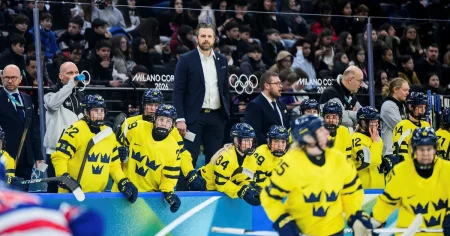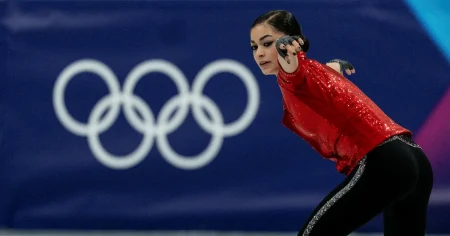Mondo Duplantis, a phenomenal athlete, was widely considered the frontrunner for the world’s best athlete of 2024, earning recognition from numerous prestigious organizations. However, the Jerringpriset, Sweden’s most prominent sports award, isn’t solely based on athletic achievement but also on public sentiment and emotional resonance. This explains why table tennis player Truls Möregårdh ultimately claimed the coveted glass trophy. While some international observers might view this as an unexpected outcome, the choice aligns with the core principle of the Jerringpriset: celebrating the athlete who most deeply connects with the Swedish public’s passions. This focus on emotional impact distinguishes the Jerringpriset and makes it a uniquely Swedish celebration of the human element in sports.
Truls Möregårdh’s journey to winning the Jerringpriset was one of unexpected triumph against formidable odds. Entering the Olympic singles tournament, his prospects appeared bleak. The draw pitted him against the seemingly invincible world number one, Wang Chuqin, against whom Möregårdh had never won. His initial reaction was one of dejection, his body language reflecting the daunting challenge ahead. However, the ninth encounter between these two players unfolded differently, becoming a landmark moment in Swedish table tennis history. Möregårdh’s stunning victory not only fractured the dominance of Chinese table tennis but also reignited a nationwide passion for the sport, a fervor that resonated all the way to Paris. He emerged as the undisputed hero of the Swedish Olympic contingent, capturing the public’s imagination like no other.
This unexpected victory over Wang Chuqin laid the foundation for Möregårdh’s silver medal at the Paris Olympics and ultimately, his Jerringpriset triumph. His compelling performance transformed the ping pong table into the sporting centerpiece of the year, his distinctive bat into the iconic sporting implement, and triggered a surge in membership applications for table tennis clubs across the country. In the aftermath of his Olympic success, Möregårdh became the nation’s most popular athlete of 2024. His open display of emotions, from unbridled joy to poignant disappointment, resonated deeply with the Swedish public. During those magical Olympic days, he tapped into a sense of nostalgia and relatability, igniting a wave of collective emotion.
Möregårdh’s connection with the Swedish public stems from the accessibility of his sport. While pole vaulting, Duplantis’s discipline, remains a relatively niche activity, table tennis enjoys widespread participation across all age groups. Almost every Swede has experienced the thrill of playing ping pong, even if only recreationally, and can therefore appreciate the exceptional skill required to perform at Möregårdh’s level. The ping pong table serves as both a sporting arena and a social hub in Swedish society, particularly in schools. Its role as a catalyst for human connection was poignantly illustrated in the popular television series ”Tunna blå linjen,” where a pivotal scene featured a vulnerable young boy yearning for his adult mentor to return to the ping pong table, a symbol of hope and shared experience.
In contrast, despite achieving remarkable feats, other Swedish athletes like Mondo Duplantis and Sarah Sjöström, while deserving contenders, couldn’t match Möregårdh’s emotional connection with the public. Duplantis, for instance, secured Olympic gold and shattered yet another world record. Sjöström, exceeding her own expectations, claimed two Olympic gold medals. By any measure of athletic achievement, their performances warranted serious consideration for the Jerringpriset. The same could be said for the beach volleyball duo of Jonatan Hellvig and David Åhman, who stormed to Olympic gold under the Eiffel Tower. Logic dictated that these athletes should have been vying for the coveted award.
Ultimately, though Truls Möregårdh finished with a silver medal in Paris, the night in Solna, where the Jerringpriset was awarded, belonged to him. His captivating Olympic journey transcended mere sporting achievement, becoming a narrative of resilience, emotional authenticity, and a rekindled national love affair with table tennis. He captured the heart of the nation, not just through his athletic prowess, but through his ability to evoke powerful and shared emotions, resonating with the spirit of the Jerringpriset. The award ultimately affirmed the unique place of emotional connection in celebrating sporting achievement.














